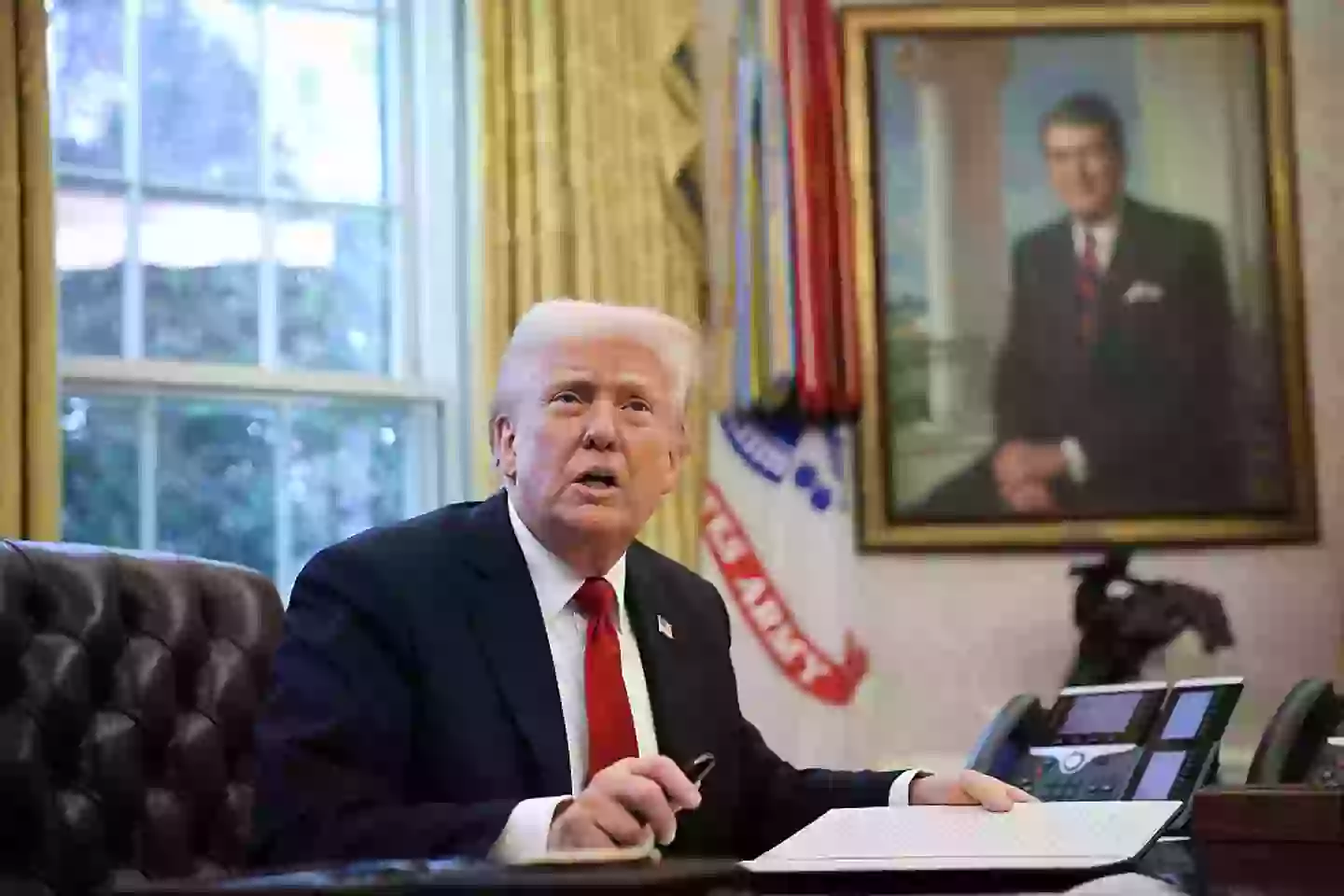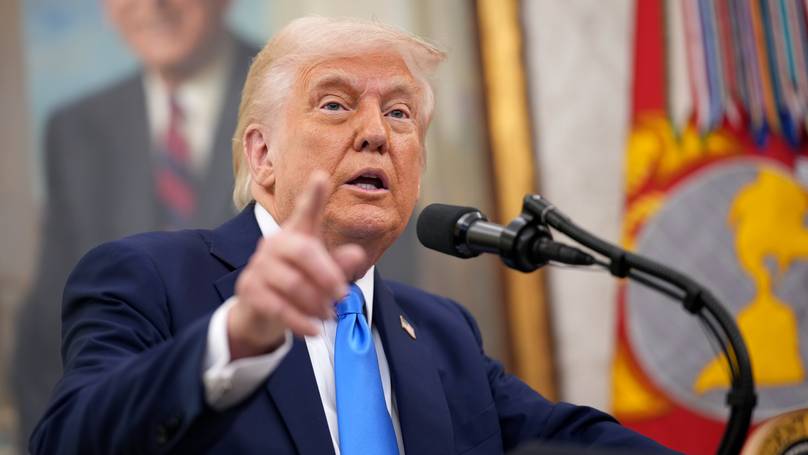“Will Trump’s ‘Liberation Day’ Trigger a Trade Tsunami? Unpacking the Impacts of Tomorrow’s Tariffs on the UK!”
Tomorrow marks what President Donald Trump has dubbed “Liberation Day,” and true to the president’s style, it’s anything but quiet. This announcement promises a wave of changes that could ripple around the globe, with the UK feeling its fair share of the impact. If you thought tariffs were just government jargon, think again! They’ve become the cornerstone of Trump’s new policies, designed to redirect trade flows and encourage domestic purchasing. And here we are, caught in the whirlwind of Trump’s latest moves, with promises of levied taxes on imports and the ever-thickening air of economic uncertainty. So, is this Liberation Day a beacon of hope, or just another twist in a rollercoaster of global trade? As the world watches—longing for clarity—let’s dive into what these changes mean for the UK and beyond. LEARN MORE.
Tomorrow is officially ‘Liberation Day’ according to President Donald Trump, and this means that a number of changes are coming into play for nations across the world, including the UK.
Trump’s second term as President of the US has not gone quietly since his inauguration in January, with a public spat with the Ukrainian President, claims that the US will take Greenland over, and of course, Tariffs.
You could coin it as the buzzword of the President’s term so far, as he has imposed new tariffs on companies importing goods from overseas, resulting in higher payments to the government.
While Trump says that this will encourage businesses to buy local products, the move is much more deep-rooted than that.
Tariffs are simply taxes on goods that are imported into the US, and by increasing these, the short-term result is that customers will have to pay more for products.
As well as this, the UK will be affected too.
When is Trump’s Liberation Day?
Trump has called 2 April ‘Liberation Day’, as he is set to reveal the new tariffs that will be placed on countries that he believes are leaving the US short-handed in trades.
What is Trump’s Liberation Day?
While the extent of these tariffs and countries targeted have not been announced, Trump said on 30 March from Air Force One that ‘all countries’ will be affected, reports Sky.
“Who told you 10-15 countries? You didn’t hear it from me,” he stated.
He was then asked about the countries he planned to impose the tariffs on, to which he replied: “You’d start with all countries, let’s see what happens.”
While he had previously suggested that he could ‘give a lot of countries breaks’, the deal would need to benefit the US too.
These agreements would have to be negotiated after Liberation Day on 2 April, though.

President Donald Trump is set to introduce a number of tariffs on 2 April (McNamee/Getty Images)
What are Trump’s tariffs on the UK?
So far, a 25% tariff on all cars imported to the US will come into effect, as well as a 25% import tax on UK steel after the president cancelled previous quota arrangements and exemptions.
On the former though, it looks like American car makers will be hit hard, as while the vehicle is made on home soil, components and parts come from around the world.
Trump pointed out that South Korean car manufacturer Hyundai are now building a $5.8bn (£4.5bn) steel plant in Louisiana to curb these tariffs.
It would have a huge effect on the British car industry, with the likes of Aston Martin, Jaguar and Land Rover being hit among others.
Data reveals that the US is the UK car sector’s biggest single market by country, which brought in £6.4bn worth of car exports in 2023.
There are currently no plans for the UK to impose their own import taxes in retaliation, but while other nations have, prices of global trade may rise across the world as a result.

Sir Keir Starmer is not a fan of the tariffs (Benjamin Cremel – WPA Pool/Getty Images)
How will the UK be affected by Trump?
While the British government hopes that an economic deal will be struck with the US, No.10 have said that there have been ‘productive negotiations’ between Prime Minister Keir Starmer and Trump.
A statement further said that discussions will ‘continue at pace’.
Starmer explained to Sky that they were ‘working hard’ on a deal, adding: “Look, the likelihood is there will be tariffs. Nobody welcomes that, nobody wants a trade war. But I have to act in the national interest and that means all options have to remain on the table.”
He added: “We are discussing economic deals. We’re well advanced. These would normally take months or years, and in a matter of weeks, we’ve got well advanced in those discussions, so I think that a calm approach, a collected approach, not a knee-jerk approach, is what’s needed in the best interests of our country.”
While the UK has not explicitly been mentioned by the president, data shows that there are no trade imbalances with the US, suggesting that good news may be on the horizon.
The car tariff is feared to have a huge impact on the UK, if nothing changes.
With tax and bill increases coming into effect this month, which can partially be remedied by an increase in the minimum and living wages, Trump’s tariffs may make a hard month become even more difficult.

















